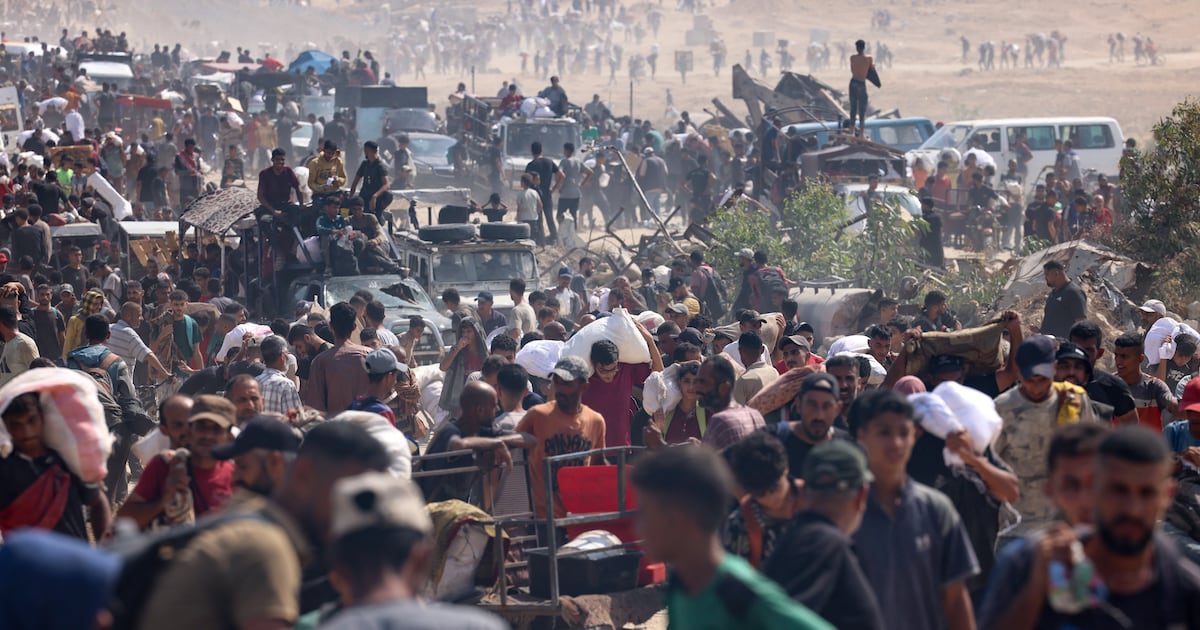World
MSF Urges Closure of Israeli Gaza Aid Sites Citing Violence

A leading medical relief organization has called for the immediate closure of aid distribution sites in Gaza that it describes as “lethal.” In a report released on March 2, 2023, Médecins Sans Frontiers (MSF) accused the Gaza Humanitarian Foundation (GHF) of engaging in practices that amount to “institutional starvation and dehumanisation.” The report highlights the consequences of Israel’s blockade, which has severely restricted humanitarian aid and resulted in significant suffering for the population.
MSF contends that the blockade, imposed earlier this year, effectively dismantled the United Nations aid system, which previously operated through approximately 400 distribution points. GHF, which began its operations in late May, has faced criticism for its management of the four sites located in areas controlled by the Israeli military. The report describes conditions at these sites as chaotic, marked by “stampedes, suffocating crowd surges, violent looting, and lethal crowd control measures.” MSF emphasized that the situation at these aid distribution points is below recognized standards for safe and dignified humanitarian assistance.
In the span of just over six weeks, between June 7 and July 24, MSF treated 1,380 casualties at two clinics in Rafah, located near GHF sites. Tragically, 28 of these individuals succumbed to their injuries. The report reveals that among the wounded were 71 children, 25 of whom were under the age of 15. Faced with desperate circumstances, families often send teenage boys into these hazardous environments, as they are frequently the only males capable of navigating the perilous journey for food.
The report details several harrowing cases, including a 12-year-old boy and five young girls, one of whom, aged eight, sustained a gunshot wound to the chest. Initial analyses from medical facilities indicate that 11 percent of gunshot wounds treated at the al-Mawasi clinic were to the head and neck, while injuries at the Khan Younis clinic predominantly affected the lower limbs. MSF quoted Mohammed Riad Tabasi, a patient who has been injured multiple times, stating that he witnessed 20 corpses at the al-Mawasi clinic, all of whom had been shot in critical areas such as the head and stomach.
MSF concluded that the distinct patterns of injuries reported suggest intentional targeting of individuals around the distribution sites, rather than errant or indiscriminate fire. The organization underscored the unacceptability of such violence, noting, “Nowhere else in the world where MSF operates—including the most volatile conflict zones—would this level of violence around an aid distribution site be tolerated.”
In response to the escalating violence, the Israeli military claimed it has only fired warning shots when crowds posed a threat to its forces. The GHF maintained that its armed contractors have only employed pepper spray and fired warning shots on rare occasions to manage crowd control. Nonetheless, MSF documented injuries to 196 patients resulting from chaotic situations at GHF distribution sites, including a five-year-old boy with severe head injuries and a woman who tragically died from asphyxiation, likely due to crowd crushes.
The report also highlights the extreme risks faced by individuals trying to secure essential food supplies. Those who successfully obtain aid frequently encounter violent looting and theft from other desperate individuals. MSF director Raquel Ayora expressed deep concern over the current state of humanitarian support, stating, “In MSF’s nearly 54 years of operations, rarely have we seen such levels of systematic violence against unarmed civilians. The GHF sites masquerading as ‘aid’ have morphed into a laboratory of cruelty. This must stop now.”
As the situation in Gaza continues to deteriorate, the report from MSF serves as a stark reminder of the urgent need for a reevaluation of the current aid distribution system and the protection of civilians caught in the crossfire of ongoing conflict.
-

 Top Stories2 months ago
Top Stories2 months agoTributes Surge for 9-Year-Old Leon Briody After Cancer Battle
-

 Entertainment3 months ago
Entertainment3 months agoAimee Osbourne Joins Family for Emotional Tribute to Ozzy
-

 Politics3 months ago
Politics3 months agoDanny Healy-Rae Considers Complaint After Altercation with Garda
-

 Top Stories3 months ago
Top Stories3 months agoIreland Enjoys Summer Heat as Hurricane Erin Approaches Atlantic
-

 World4 months ago
World4 months agoHawaii Commemorates 80 Years Since Hiroshima Bombing with Ceremony
-

 Top Stories2 months ago
Top Stories2 months agoNewcastle West Woman Patricia Foley Found Safe After Urgent Search
-

 Top Stories4 months ago
Top Stories4 months agoFianna Fáil TDs Urgently Consider Maire Geoghegan-Quinn for Presidency
-

 World4 months ago
World4 months agoCouple Convicted of Murdering Two-Year-Old Grandson in Wales
-

 World4 months ago
World4 months agoGaza Aid Distribution Tragedy: 20 Killed Amid Ongoing Violence
-

 World4 months ago
World4 months agoAristocrat Constance Marten and Partner Convicted of Infant Murder
-

 Top Stories3 months ago
Top Stories3 months agoClimbing Errigal: A Must-Do Summer Adventure in Donegal
-

 Top Stories3 months ago
Top Stories3 months agoHike Donegal’s Errigal Mountain NOW for Unforgettable Summer Views









